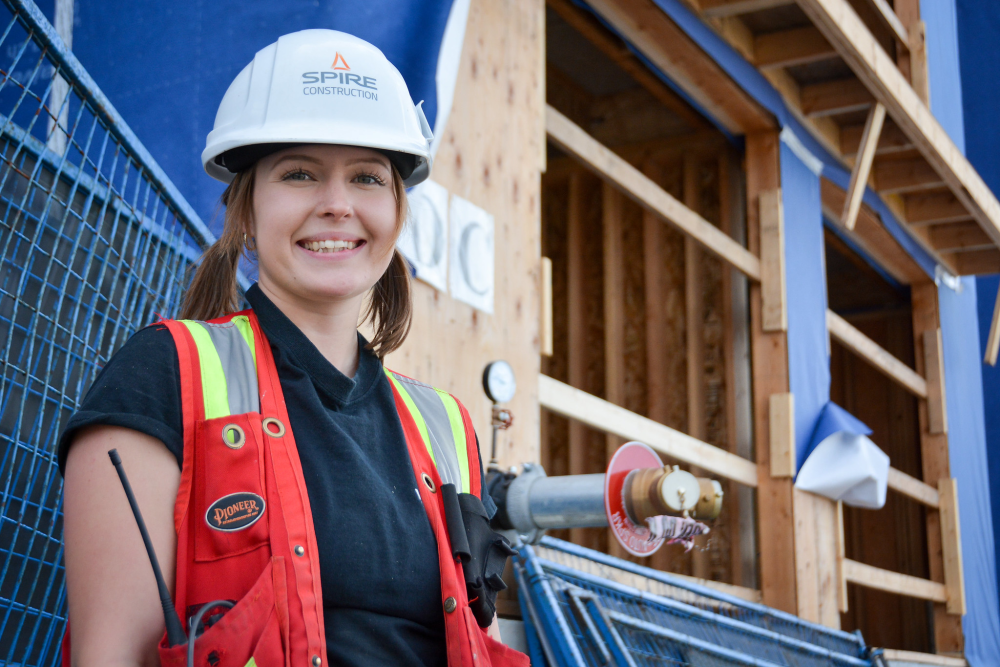VANCOUVER / MUSQUEAM, SQUAMISH & TSLEIL-WAUTUTH TERRITORIES — As B.C. invests $1.5 billion in economic recovery and stimulus, the government has an unprecedented opportunity to move forward on its promise of a low-carbon economy that creates jobs while protecting the air, land, and water.
According to the Pembina Institute, the B.C. government should ensure that economic relief and stimulus programs enhance and accelerate progress toward the vision and goals of the province’s climate plan, CleanBC.
Today, the Pembina Institute released Rebuilding a Resilient B.C., an action plan for investing in jobs and better health and well-being for British Columbians. The action plan outlines four principles for a resilient recovery in B.C. and offers recommendations in support of low-carbon homes and buildings, clean transportation, and clean energy.
 These recommendations include:
These recommendations include:
- Position B.C. to be a leading supplier of renewable fuels
- Set B.C. on a path to be a leading producer and consumer of low-carbon and zero-carbon hydrogen
- Grow and train the workforce and develop the supply chain for building retrofits
- Raise incentive caps to deepen retrofits of homes and buildings
- Provide funding for capital and operating costs for transit
- Invest in active transportation
Quotes
“Across Canada and elsewhere, B.C. is being commended for its deft navigation of the COVID-19 pandemic. Now B.C. has another opportunity to show leadership — by rebuilding the economy to ensure our province’s future resilience.”
— Karen Tam Wu, B.C. director, Pembina Institute
“As the economy rebounds, B.C.’s rapidly growing clean fuel sector is poised to provide clean energy solutions, including low-carbon hydrogen, biofuels, and biomethane. Ramping up these clean fuels requires further investment to advance technology and supply chains.”
— Tahra Jutt, clean economy director (B.C.), Pembina Institute
“Investing in retrofits is an opportunity to create jobs in every community, reduce climate pollution from our homes and buildings, and offer safer shelter to British Columbians facing extreme weather and pandemics.”
— Tom-Pierre Frappé-Sénéclauze, director of buildings and urban solutions, Pembina Institute
Quick facts
- Number of retrofits needed every year in B.C. to cut carbon pollution from buildings by at least 80 percent by 2050: 30,000 houses, 20,000 apartment units, and 3 million square metres of commercial space
- Benefits of a scaled-up retrofit industry in B.C.: $10 billion in economic activity and 20,000 jobs
- Portion of B.C.’s carbon pollution arising from road transportation: 27 per cent
- Share of road transportation emissions from medium and heavy-duty trucks: 46 per cent
- Percentage of fossil fuels in overall mix of energy used in B.C.: 66 per cent
[30]
Download the Rebuilding a Resilient B.C. action plan: pembina.org/pub/resilient-bc
Join the conversation on Twitter: #ResilientBC @Pembina
Contact
Stephen Hui
Senior communications lead, Pembina Institute
778-987-7654
stephenh@pembina.org
Tw: @StephenHui
About the Pembina Institute
The Pembina Institute is a non-profit think-tank that works to advance a prosperous clean energy future for Canada through credible policy solutions that support communities, the economy, and a safe climate. We have offices in Vancouver, Calgary, Edmonton, Ottawa, and Toronto. Learn more: www.pembina.org




